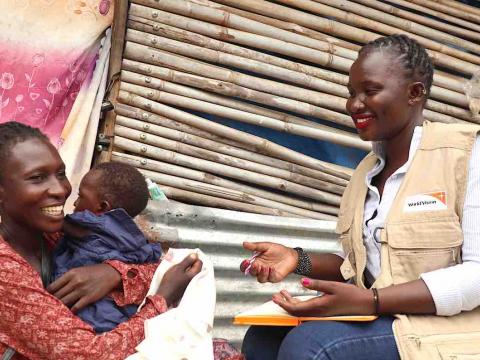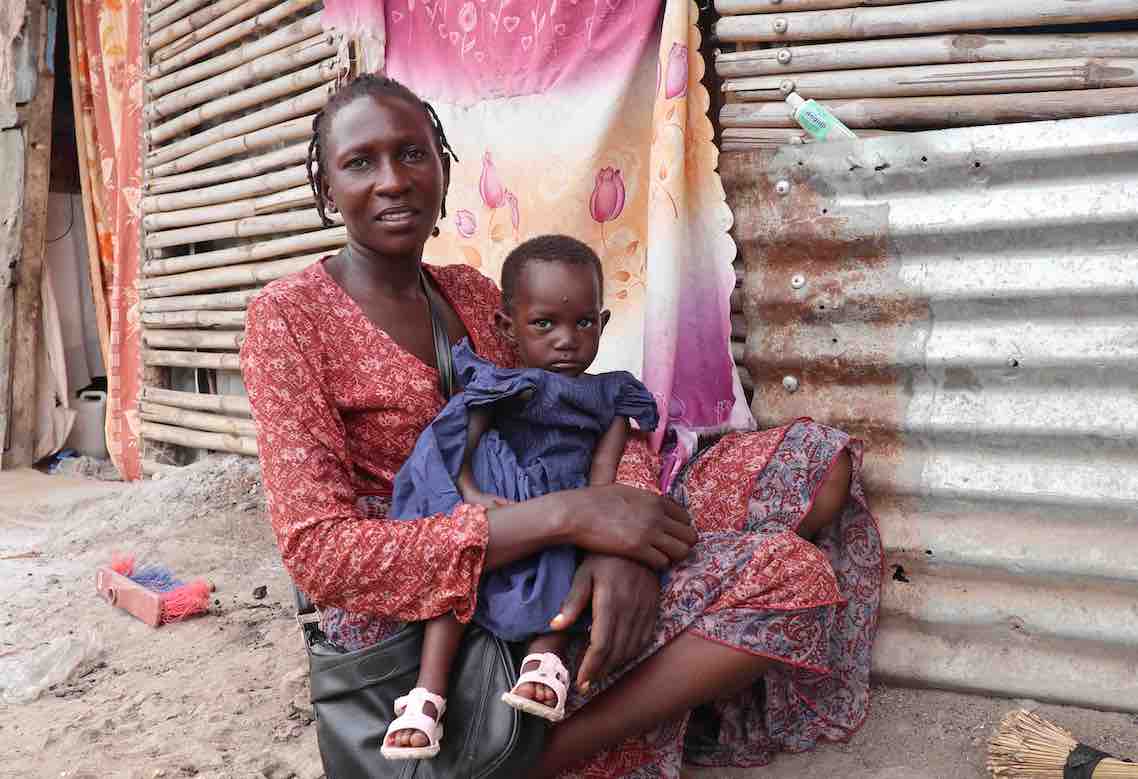Every South Sudanese family’s choice is between hunger and coronavirus

I was born witnessing the suffering of my countrymen from conflict and hunger.
When the peace negotiation was signed last February 2020, the South Sudanese people, including me and my family, were so excited to pick up the pieces of our lives. We are finally seeing the fruits of what we have been dreaming and praying for.
But just a few weeks after the celebration of a new journey towards lasting peace, the reality of the COVID-19 pandemic impacting the country slowly eroded our hopes.
I talked to the mothers I met in World Vision’s awareness campaigns and they shared the same fears that I have. I saw it in Yakuta Agnes’s worried eyes. “I am terrified”, she told me. “I lost my parents at a young age and I am scared to leave my children behind.”

Yakuta’s husband, a shop-owner, often travels to Uganda to buy goods to sell. For a long time, it was a normal thing for him to go on a packed public bus to earn a living. Not anymore.
She cannot imagine the risk he takes with a busload of passengers. It even puts his family in danger of infection. He cannot stop as the family worries where to get food next.
Most people in South Sudan are dependent on humanitarian assistance; the rest either depend on small businesses or monthly salaries.
If these sources of income, no matter how meager, will be affected by the pandemic, people can suffer a much worse kind of hunger more than what they are already going through for years.
The majority of the people in South Sudan use the mini-buses to go to the markets, share clothes, use the same cups and plates, and many cannot afford healthy meals. The mothers wonder how they can afford hand sanitizers, masks and things that can protect them from the deadly pandemic.
“I do not take the minibus to the market anymore because I might get the virus from my fellow passengers then bring it home to my children,” says Hanan Mahamud, 27-year-old, mother of six. Hanan now endures walking to the market to keep herself and her family safe from the virus.
Hanan is very much aware of the dangers of the virus. “It is a killer disease, we were told, and has no treatment. The World Vision staff told us to wash our hands at all times, practice social distancing, avoid close contact with people especially those with flu, cough, fever, and those who sneeze often”, she adds.
My biggest fear is the lack of health facilities for people who will be infected with the pandemic. The hospitals have not yet recovered from the conflict. There are few private hospitals but nobody is confident they can handle so many cases with the equipment that they have. Even if they have, ordinary South Sudanese cannot afford them.
I am terrified of the virus, and worries for my family. But my heart also bleeds for my brothers and sisters in the Protection of Civilians sites, thousands of them, who depend on humanitarian organizations like World Vision for survival.

The campaign for prevention measures were constantly drummed up in the sites, along with banners and on radio programs. But the crowded living condition make it difficult. I am afraid it will only take one person to spread fast.
Nyamuon asked me how can we stop the pandemic. It was difficult for me to answer and instead reminded her of the prevention measures she learned. I told her to keep the faith and assured her God is in control.
Just like other humanitarian workers, I still jump in a taxi to get to work every morning. How can I stop doing my passion for writing and sharing stories of those who are not able to speak out for themselves?
As I protect myself with the hygiene practices, a mask, a sanitizer, and social distance, I will continue to deliver my work and trust God to protect and see me through this trying moment. The one this I can be sure of, that my family and I will continue to take the necessary precautions to keep us safe from COVID-19.
Blog by Scovia Faida Charles Duku, Communications Officer